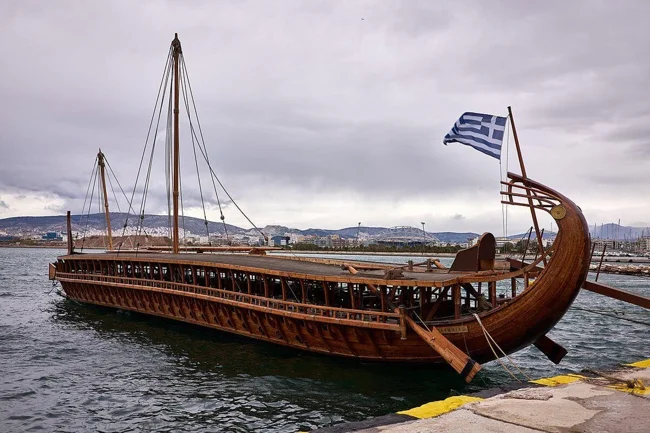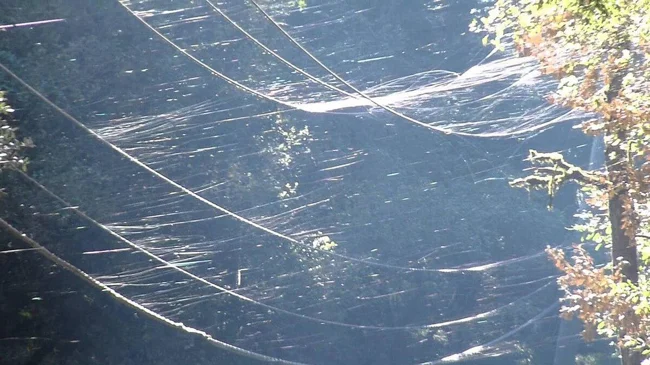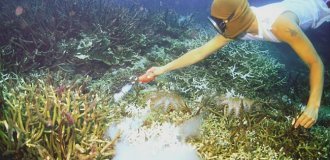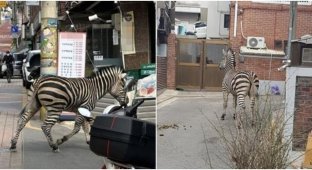From flying spiders to a hoax island: 9 amazing facts from different fields of knowledge (10 photos)
In our world, you can encounter such amazing phenomena that they seem like pure fiction. 
If someone told you that spiders fly on silk "electric parachutes" and fishermen witness the birth of a new island, you would think it was nonsense. But it's all true. After these facts, you will definitely want to refresh your knowledge.
1. He could have escaped, but he stayed 
Orangutan Ken Allen from the San Diego Zoo became famous for his numerous escapes in the 1980s. During his forays, he calmly walked around the zoo, looking at other animals. The animal never showed aggression towards visitors, but he threw stones at another orangutan, Otis, whom he did not like. T-shirts and stickers with the words "Free Ken Allen" were sold in the city. His escapes were so frequent that zoo employees even staged "false" ones to figure out his methods and eliminate weak points in Allen's enclosure. For his amazing abilities, the orangutan was nicknamed Hairy Houdini by the press.
2. A Slap with Consequences 
Researchers of professional slap fights analyzed 333 slaps for visible signs of concussion. It turned out that in more than 50% of the series of strikes, the fighters showed obvious symptoms of concussion, and almost 80% of the participants had at least one such sign during the match.
3. A Game That Dependent on the Weather 
In 2003, Hideo Kojima developed a game for the Game Boy Advance with a photosensor in the cartridge. The game mechanics changed depending on the time of day in the real world. For example, sunlight charged the "solar weapon", stronger enemies (vampires) appeared at night or in the shadows, and some locations became accessible only at a certain level of light. Boktai became a cult favorite among collectors, but received mixed reviews due to difficulties in cloudy regions or in winter.
4. Statistical miracle 
The Guinness record for the largest number of birthdays on one day belongs to the Pakistani family of Rana Hamid Ali from the city of Multan. All of its members were born on August 1, including the mother and father. By the way, the couple also got married on August 1, 1991. They did not plan to conceive, and the mother of many children always gave birth naturally without assisted technology.
5. The Traitor Hero 
Pausanias was a Spartan general who defeated the Persians at Plataea, and was later accused of conspiring with them. He took refuge in the Temple of Athena in Sparta, where he could not be killed without committing sacrilege. But his mother came to him and placed a stone at the entrance, symbolically offering to wall up her son in the temple. The Spartans did so. Pausanias died of hunger and thirst. In Sparta, treason was considered a disgrace for the entire family, and a mother could publicly turn her back on her son to preserve the honor of the family.
6. Revived ancient ship 
The Greek Navy has a fully working replica of an ancient trireme. This is the only vessel of this type in the world in service. The replica is called "Olympia" (Ὀλυμπιάς), built in 1985-1987 on the initiative of the British historian John Morrison and the Greek authorities. It is the only one of its kind, since it is formally listed as a training vessel in the Greek Navy and participates in parades (for example, at the opening of the 2004 Olympics) and scientific experiments. While all other replicas are museum or private projects.
7. Electric Aviators 
Spiders can fly using atmospheric electricity. The electric potential of the atmosphere is not uniform - the voltage at different points is different. Although a person is not able to feel this difference in voltage, some insects, such as spiders and bees, have this ability. Light threads of the web rise up on the same principle as the hair on the human head, attracted by static electricity from an electrified balloon. However, unlike hair, which is not able to lift the weight of a person, the threads of the web easily support the weight of a spider. This allows spiders to cover huge distances, including oceans.
8. 13 microseconds of chaos 
On January 26, 2016, a glitch during the decommissioning of a GPS satellite caused a time error on 15 satellites. They were off by 13 microseconds. This tiny glitch triggered thousands of system errors and alarms in telecommunications networks around the world that lasted for more than 12 hours.
9. Accidental Discovery 
On November 14, 1963, fishermen on the fishing vessel Ísleifur II south of Iceland noticed a plume of smoke in the distance. The crew headed out to help, but found a volcanic eruption in the middle of the ocean. It lasted for 7 months and resulted in the birth of a new island, Surtsey. It was named after the fire giant Surt from Scandinavian mythology. Today it is a nature reserve that is only open to scientists studying the emergence of ecosystems.




























